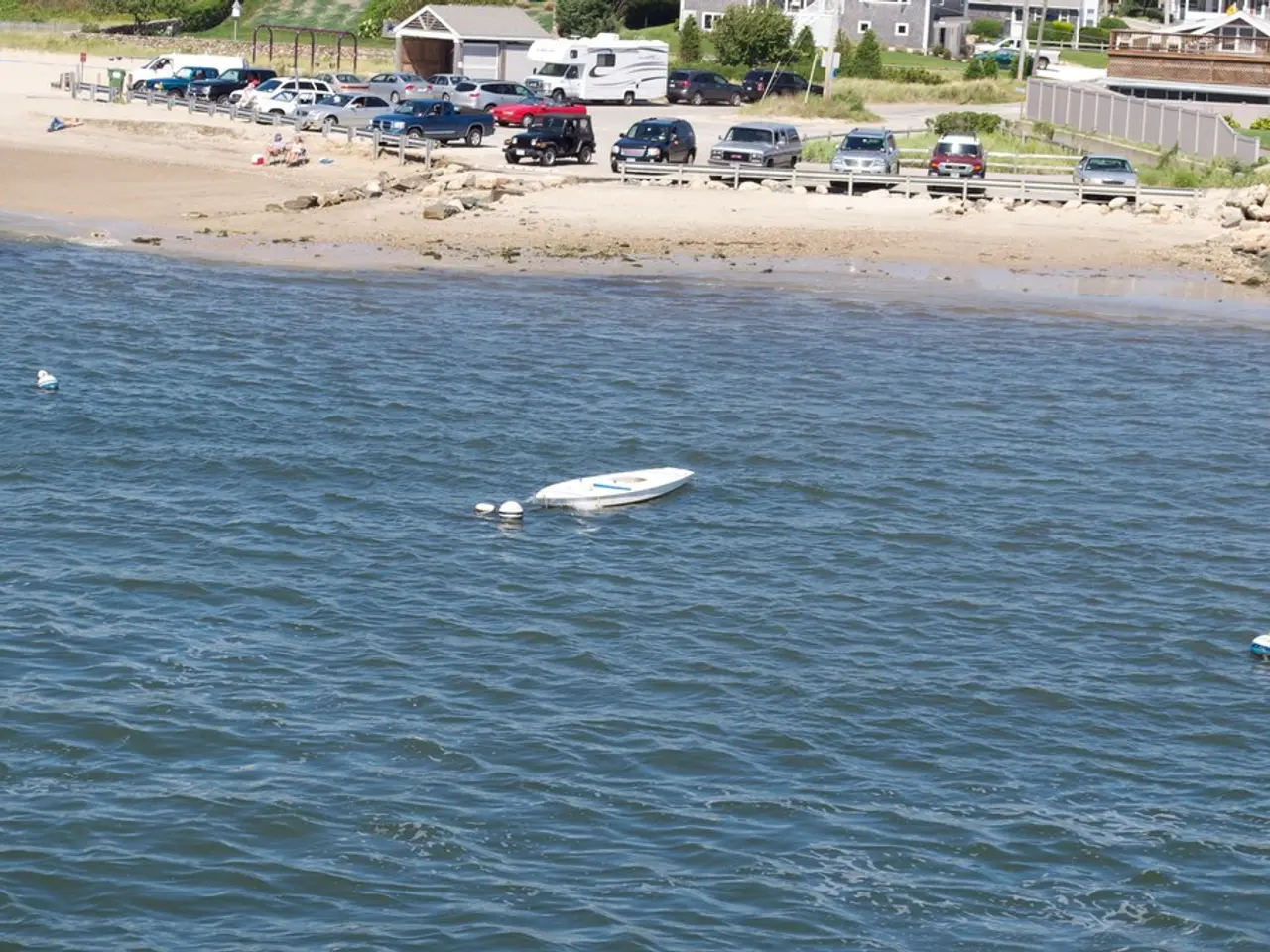Solar company, First Solar, ends use of minerals extracted from deep sea mining, due to pressure from shareholders
In the upcoming year, the future of deep-sea mining remains uncertain as a broad coalition of advocacy groups, scientists, and policymakers call for a cautious, science-driven approach. The International Seabed Authority (ISA), which governs seabed activities in international waters, has yet to authorize commercial mining, pending the adoption of an international mining code intended to safeguard the environment [4][5].
The practice of deep-sea mining, which indiscriminately destroys sea life and ecosystems in its path, has been met with opposition due to significant environmental concerns. The ISA has delayed releasing a finalised deep sea mining code several times in past years [6]. Deep-sea mining releases sediment plumes laced with toxic metals, potentially disrupting entire food webs and causing a cascading effect of biodiversity loss far beyond the mining site [7].
As You Sow, a shareholder advocacy group, is at the forefront of these efforts. They have refiled proposals at General Motors and Tesla asking the companies to implement sourcing policies that exclude deep sea mined minerals [1]. First Solar has already committed to exclude minerals mined from deep sea production and supply chains due to environmental concerns, marking the fifth deep sea mining withdrawal agreement in 2025 [8].
A growing list of 60 companies and 30 countries have already agreed to a moratorium on deep sea mining [9]. Elizabeth Levy, biodiversity program coordinator at As You Sow, states that First Solar's commitment challenges the false narrative that deep seabed minerals are necessary for the energy transition [10].
Meanwhile, some governments have taken contrasting policy stances. The US Department of the Interior issued an executive order in mid-2025 to accelerate offshore critical mineral development, reflecting national security and economic interests [3]. However, financial institutions and investors remain cautious, with some pledging not to fund deep-sea mining projects due to environmental risks and regulatory uncertainties [3].
Advocacy efforts include campaigns for a global moratorium on deep-sea mining until environmental impacts are fully understood and regulations are in place [1]. Scientific engagement with the ISA to ensure international mining codes incorporate robust environmental protections and precautionary principles is also ongoing [4]. Public awareness initiatives highlighting the unknown risks to unique deep-sea habitats and species are being carried out [1][2].
Pressure is being applied on policymakers to balance mineral demand for green technologies with ocean conservation, pointing out that some predictions of metal shortages may be overstated [2]. As progress is expected to be made this year regarding the finalisation of the deep sea mining code by the ISA [11], the seabed mining industry's potential boost from the Trump administration contrasts with the growing number of agreements and moratoriums against deep sea mining.
References:
- Deep Sea Mining Threatens Ocean Life, Advocates Say
- Deep Sea Mining: A Dangerous Gamble
- US Pushes Ahead with Offshore Mining despite Environmental Concerns
- MiningImpact3: Assessing the Impact of Deep-Sea Mining on Biodiversity
- The International Seabed Authority and Deep-Sea Mining
- The Delayed Deep Sea Mining Code and the ISA
- Deep-Sea Mining: A Cascading Effect of Biodiversity Loss
- First Solar Commits to Exclude Deep Sea Minerals from Supply Chain
- Growing Coalition Agrees to Moratorium on Deep Sea Mining
- First Solar's Deep Sea Mining Withdrawal Challenges Energy Transition Narrative
- Progress Expected on Deep Sea Mining Code in 2025
- The scientific community, including those specializing in environmental science, remains concerned about the environmental repercussions of deep-sea mining, particularly in terms of its impact on seafloor ecosystems and biodiversity.
- Advocacy groups, such as As You Sow, are urging the finance sector to avoid funding deep-sea mining projects, citing the potential ecological risks and regulatory uncertainties associated with these projects.
- As the energy industry transitions towards renewable sources, some policymakers are advocating for a shift in focus from deep-sea mining to more sustainable methods of obtaining minerals essential for green technologies.




